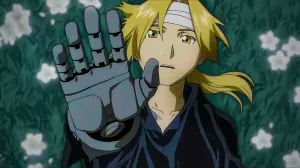It’s been more than two years since the first season of Star Trek: Picard debuted, and things have changed, both in reality and for the characters in the series. Evan Evagora plays Elnor, a deadly Romulan warrior raised by the Qowat Milat sect to practice “absolute candor.” In the show’s first season, he healed his estranged relationship with Jean-Luc Picard, a father figure. Santiago Cabrera plays Cristobal Rios, a former Starfleet officer who abandoned the organization after a betrayal. Isa Briones’ Soji Ahsa learned that she’s a synthetic android, Data’s “daughter,” and made peace with that and with the organic lifeforms that had persecuted her kind for years.
Videos by ComicBook.com
ComicBook.com had the chance to talk to this trio of actors about what makes the second season of Star Trek: Picard different from the first. The presence of COVID-19 during filming was one answer, but Evagora also suggests Picard‘s second season is faster-paced than its first.
“I’d say the pace was, especially with the start of this season, is a lot different to the other one,” he says. “I mean it took Picard a while to leave Earth.”
Picard’s second season sees the cast time traveling to the present day. Cabrera notes that “Being in the present was a huge shift in terms of storyline and that was a fun adjustment that we’re all in a different timeline for a big chunk of it and filming in the city where you’re actually meant to be as well, so that was great and that was a very different thing. I remember when we wrapped season, we all went for the premiere of season one as I was leaving our party when we used to go to parties and do this with each other, Alex Kurtzman, when I went to stay bye, he just went, ‘Time travel. Time travel,” and I was already so excited, but then we had to wait for a year and all that.”
“I think a big difference too is when we left off in season one we assumed that we were all going to be together and it was going to be this crew and then of course it hits the fan and then we go off on our own things again,” Briones adds. “So it’s this classic comedy of errors, in a way, that we find ourselves in.”
With most of the conflicts that defined the characters in season one resolved and a significant time jump between the two seasons, it should be interesting for fans to see how changed the characters are from their debuts. “I wouldn’t say hugely changed,” Evagora says. “I just say they’ve progressed a lot further on their journey, and they’ve got other issues and other problems like us as people face every day. The issues and things, we may carry them with us or resolve them in some way, but every day there’s something different in our lives, so I don’t see why it would be any different with our characters in the show.”
Briones says, “I think, really, it took a lot of character work filling in the gap of time and deciding for yourself and your character what happened in that time and how has that changed your character and having that inform how we carry on into the second season.”
“There’s definitely at least a growth during the season which was nice to play with in real-time, Cabrera adds. “At least where during the season there’s more change or growth of sorts.”
Star Trek: Picard‘s second season debuts on Paramount+ on March 3rd. The first season is streaming now.








